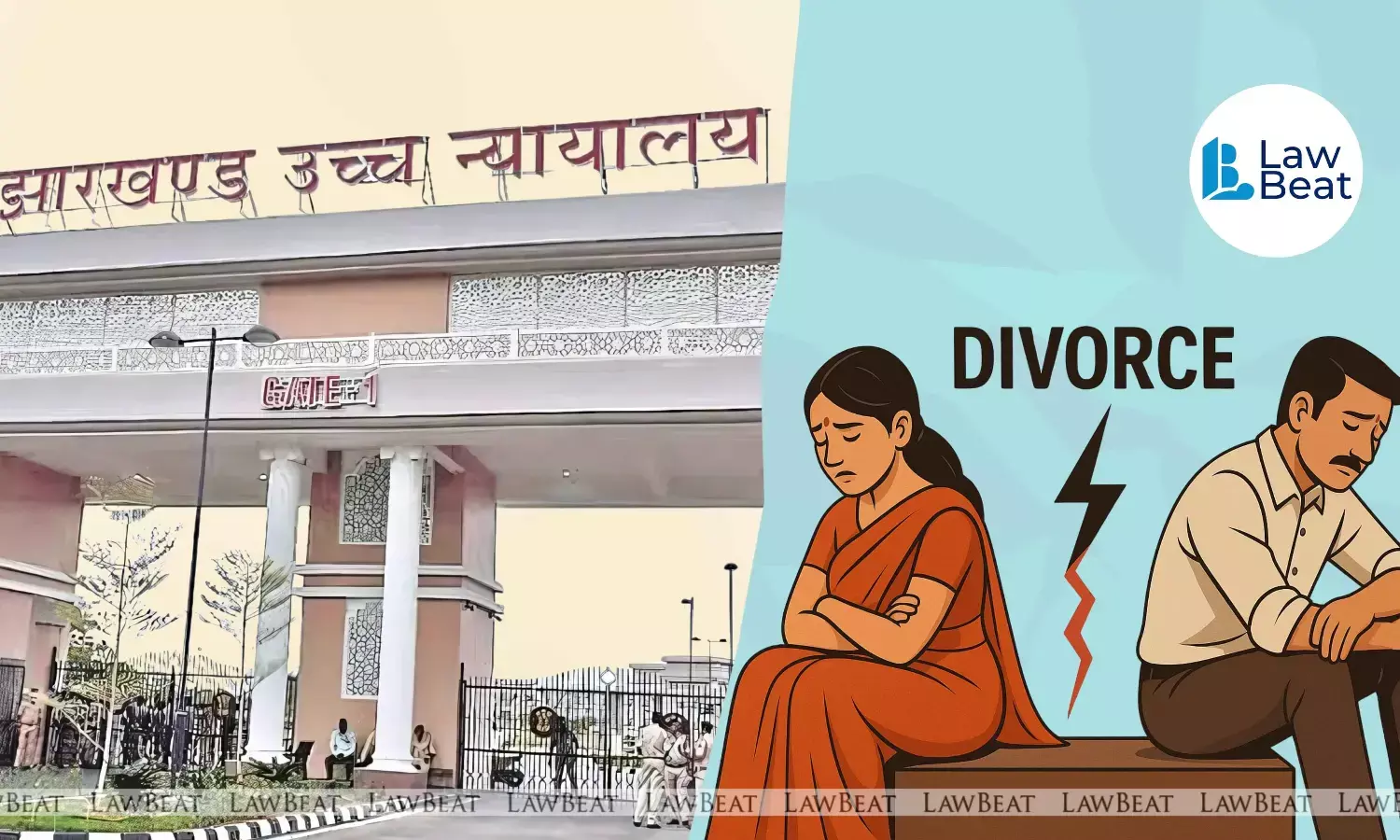Mental Illness Allegations Alone Not Enough For Divorce, Must Be Backed By Evidence: Jharkhand HC

The Jharkhand High Court has held that vague allegations of mental illness without concrete evidence cannot form the basis for granting divorce under Section 13(1)(iii) of the Hindu Marriage Act, 1955.
The Court emphasized that claims of a spouse suffering from unsoundness of mind must be supported by “cogent, tangible, and reliable evidence” such as medical records or expert psychiatric opinion.
The Division Bench of Justice Sujit Narayan Prasad and Justice Rajesh Kumar made these observations while dismissing an appeal filed by a husband challenging the order of the Family Court, which had refused to dissolve his marriage on grounds of cruelty, desertion, and mental illness of his wife.
The High Court, after thoroughly examining the testimonies and evidence presented by both sides, concluded that the husband had failed to discharge the burden of proof placed upon him under law. It noted that although he had raised several grounds, ranging from cruelty and desertion to his wife’s alleged mental disorder, he did not produce any concrete documentary evidence to substantiate his claims.
“Except for vague and omnibus allegations made by the husband against his respondent-wife, no cogent, convincing, or clinching evidence has been led to substantiate the charges of cruelty, desertion, and mental illness. The onus to prove the grounds taken for divorce squarely rests on the husband, which are required to be discharged by leading cogent, tangible, and reliable evidence,” the Court observed in its judgment.
Section 13(1)(iii) of the Hindu Marriage Act allows divorce on the ground of mental disorder or unsoundness of mind, but it also imposes a stringent threshold, requiring the petitioner to prove that the mental condition is incurable and severe enough to make cohabitation impossible.
The Court referred to the wife’s own statement, where she had expressed her willingness to continue the marriage and stated that she wished to lead a happy marital life with her husband. She further undertook to be a dutiful wife, pledging love, care, and respect towards her husband and in-laws.
The High Court also endorsed the Family Court’s reasoning that the husband had produced no evidence whatsoever, no psychiatrist’s opinion, no medical prescription, nor any record of continuous treatment, to prove the alleged mental illness of his wife.
Referring to the Indian Evidence Act, the Court noted that while expert medical opinion is admissible under Section 45, it is not binding on the court and must be corroborated by other evidence.
In the absence of expert testimony, the court may consider other facts and circumstances, such as the spouse's behavior, to assess the veracity of such claims. In the present case, however, there was neither expert opinion nor corroborative evidence.
“The burden to prove mental disorder or unsoundness of mind lies on the party who seeks to use this ground for divorce. In this case, no concrete evidence like a psychiatrist's opinion or prescription of continuous treatment has been led by the appellant husband. Merely levelling allegations is not sufficient,” the Bench remarked.
The Court added that such serious accusations, if not backed by proper medical evaluation, could not justify the dissolution of a marriage solemnized under the Hindu Marriage Act. The mere fact that the husband perceived the wife’s behaviour as indicative of mental illness was insufficient without clinical proof.
Upholding the Family Court’s decision, the High Court dismissed the husband’s appeal, reinforcing the principle that serious matrimonial allegations require substantial proof.
Case Title: ABC v. XYZ
